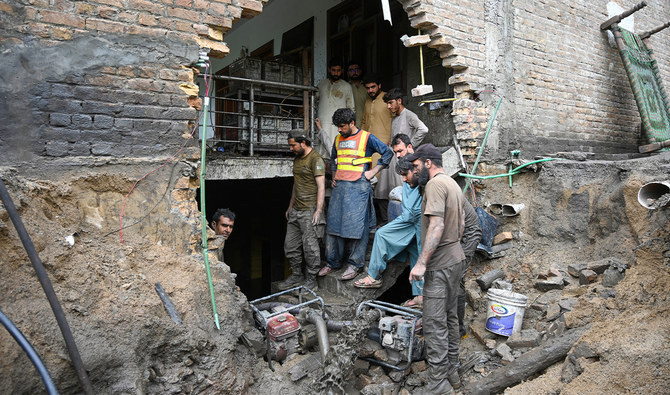ISLAMABAD: Authorities on Friday warned of further rains and landslides in Pakistan’s northwestern Khyber Pakhtunkhwa (KP) province over the next 24 hours, as death toll from rain-related incidents rose to 64 in the region.
Torrential monsoon rains have killed at least 180 people across Pakistan, including 64 in the Khyber Pakhtunkhwa province, since July 1, according to disaster management authorities.
A westerly wave is likely to affect upper parts of Pakistan as monsoon currents from the Arabian Sea and the Bay of Bengal continue to penetrate southern and central regions of the South Asian country.
“[There is a] risk of urban flooding in main cities of the province,” the KP provincial disaster management authority (PDMA) said in a statement on Friday.
“Landslides in Chitral, Dir, Swat, Buner, Shangla, Kohistan, Battagram, Torghar, Mansehra, Abbottabad districts may affect the vulnerable points in the area during the wet spell.”
It said thunderstorms could damage loose structures like electric poles, vehicles and solar panels, urging relevant departments to remain alert during the forecast period.
Pakistan is recognized as one of the most vulnerable countries to climate change effects in the world. This year, the South Asian country recorded its “wettest April since 1961,” with 59.3 millimeters rainfall and at least 144 deaths in thunderstorms and house collapses, mostly in Khyber Pakhtunkhwa, according to authorities.
In June, a senior UN official warned that an estimated 200,000 people in Pakistan could be affected by the upcoming monsoon season, which is expected to bring heavier rains than usual.
Unusually heavy rains in 2022 triggered flash floods in many parts of the country, killing over 1,700 people, inflicting losses of around $30 billion, and affecting at least 30 million people.
















